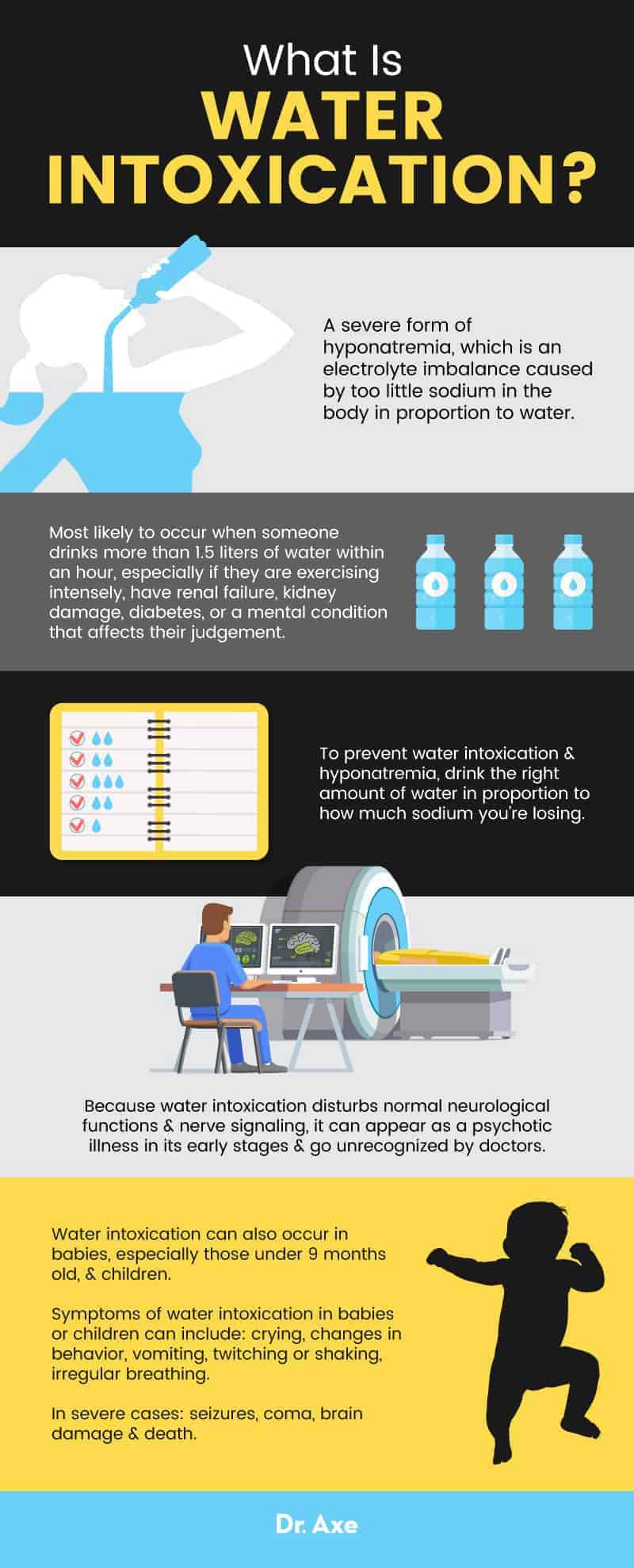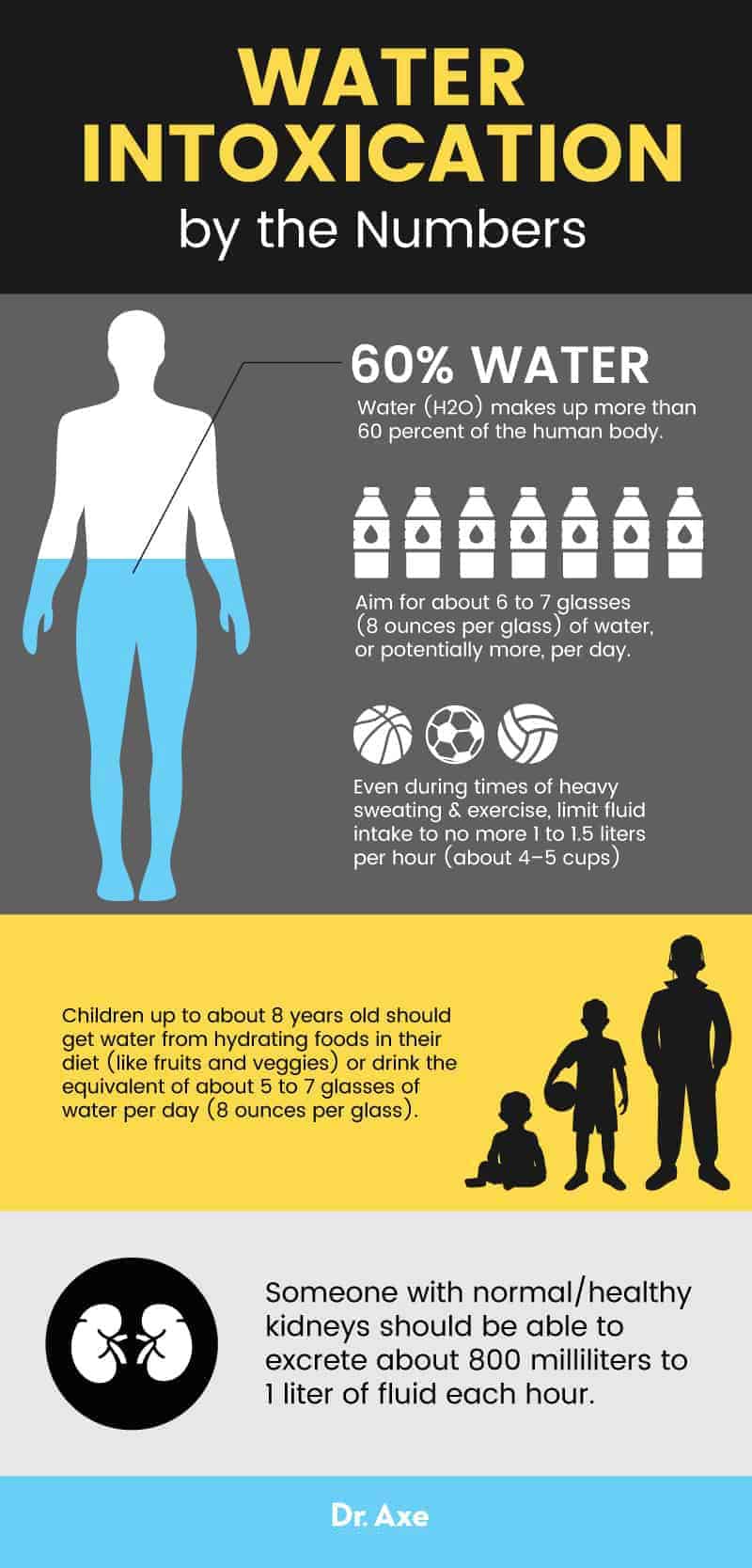This Dr. Axe content is medically reviewed or fact checked to ensure factually accurate information.
With strict editorial sourcing guidelines, we only link to academic research institutions, reputable media sites and, when research is available, medically peer-reviewed studies. Note that the numbers in parentheses (1, 2, etc.) are clickable links to these studies.
The information in our articles is NOT intended to replace a one-on-one relationship with a qualified health care professional and is not intended as medical advice.
This article is based on scientific evidence, written by experts and fact checked by our trained editorial staff. Note that the numbers in parentheses (1, 2, etc.) are clickable links to medically peer-reviewed studies.
Our team includes licensed nutritionists and dietitians, certified health education specialists, as well as certified strength and conditioning specialists, personal trainers and corrective exercise specialists. Our team aims to be not only thorough with its research, but also objective and unbiased.
The information in our articles is NOT intended to replace a one-on-one relationship with a qualified health care professional and is not intended as medical advice.
Water Intoxication: How Much Water Is Too Much?
March 9, 2018

There’s no doubt about it, drinking enough water to stay hydrated is important for many reasons — such as preventing fatigue, regulating blood pressure and even controlling hunger. But can you have too much water?
The answer is yes, you definitely can. In fact, water intoxication (a severe form of hyponatremia) is considered to be a life-threatening emergency that must be diagnosed and treated promptly to prevent serious complications. Below we’ll look at the dangers associated with drinking too much water, plus how much water should actually be consumed daily for optimal hydration.
What Is Water Intoxication?
The definition of water intoxication is: “A lowered blood concentration of sodium (hyponatremia) that occurs due to the consumption of excess water without adequate replacement of sodium.” (1)
Water intoxication is referred to in a few different ways, including: hyponatremia, water poisoning, hyperhydration, or excessive water intake. All of these terms describe the same serious health condition that is caused by an electrolyte imbalance — specifically having too much water (H2O) in the blood in relation to sodium.
Hyponatremia means low sodium levels in the blood (the term, which has Latin and Greek roots, literally means “insufficient salt in the blood”). Water intoxication, or hyponatremia, is the opposite of hypernatremia, the condition that occurs due to dehydration (low levels of body water).
The Causes of Water Intoxication:
Because it’s preventable, you might be wondering in what types of situations is water intoxication most likely to occur? Studies have found that this condition commonly develops in hospitalized patients and those with mental disturbances, although it can also affect people who are otherwise healthy. Water intoxication has been described in several different clinical situations:
- Compulsive water drinking is known as psychogenic polydipsia. This is most often associated with either mental illness or mental handicaps.
- Water intoxication is commonly associated with a combination of drinking lots of fluids and also having increased secretion of vasopression (also called antidiuretic hormone), which causes the kidneys hold onto water.
- Young people who are in good health, such as athletes or army recruits, might develop hyponatremia (overhydration) following heat-related injuries. They may drink a high volume of water to try to prevent dehydration, but this can backfire if they consume far too much. One study investigating hyponatremia in otherwise-healthy army recruits found that 77 percent of hyponatremia cases occurred in the first four weeks of training, and that most of the recruits who were affected had exceeded drinking two quarts of water per hour. (2) The authors concluded that “hyponatremia resulted from too aggressive fluid replacement practices for soldiers in training status. The fluid replacement policy was revised with consideration given to both climatic heat stress and physical activity levels.”
- Accidental water intoxication can sometimes occur due to abnormal renal failure/kidney dysfunction, diabetes insipidus or gastroenteritis ( inflammation of the lining of the intestines caused by a virus, bacteria or parasites). In these situations hyponatremia is typically treated with gastric lavage, or stomach pumping/gastric irrigation. (3)
- Iatrogenic causes of water intoxication are due to complications that occur when illnesses are treated by medical intervention, such as the use of intravenous fluids or electrolytes, elemental nutrition, nasogastric tube feeding, or when taking certain neurological/psychiatric medications. This is unlikely to affect people who have normal kidney function and are generally healthy, but it’s possible if they experience changes in antidiuretic hormone secretion, since this causes fluid accumulation.
- In some cases, water intoxication has occurred due to “water-drinking contests” that lead people to consume large amounts of water despite becoming ill while they do it.
- When people take the illegal drug called MDMA (or “ecstasy”) they put themselves at risk for electrolyte imbalance because the the drug makes them feel very hot, causes increased perspiration and increases thirst, while also causing more sodium to be lost via urine and sweat. This can lead to drinking large amounts of water/fluids, which in some cases may led to water intoxication. (4)
- In rare cases, forced water intoxication has been recognized as a form of child abuse, which commonly leads to brain damage and can be fatal.

Signs & Symptom of Water Intoxication
- Headaches, confusion and disorientation.
- Nausea and vomiting.
- Impaired mental state and psychotic symptoms, such as experiencing psychosis, delirium, inappropriate behavior, delusions and hallucinations. Sometimes these symptoms can also contribute to water intoxication because the person doesn’t realize what is happening to them and doesn’t seek help.
- Muscle weakness, cramping, twitching, aches and fatigue.
- Difficulty breathing.
- Frequent urination.
- Changes in blood pressure and irregular heartbeats.
- Severe drowsiness, seizures, respiratory arrest, brain stem herniation, and coma.
Because water intoxication messes with normal neurological functions and nerve signaling, it can manifest as a psychotic illness in its early stages that can go unrecognized by doctors. For example, if someone is admitted to the emergency room for water intoxication medical providers might mistake the patient’s symptoms for a high fever, seizure, or mental disorder such as chronic paranoid schizophrenia.
Water intoxication doesn’t just affect adults; it can also occur in babies, especially those under 9 months old, and in children. Symptoms of water intoxication in babies or children can include: crying, changes in behavior, vomiting, twitching or shaking, irregular breathing, and, in severe cases, seizures, coma, brain damage and death.
Dangers of Water Intoxication
Why, exactly, is drinking too much water dangerous?
Some of the negative health impacts associated with water intoxication include:
- Developing dangerously low sodium levels due to water flushing too much sodium from the body. Serum sodium concentration can fall to below 110–120 mmol/liter, when the normal serum reference range is about 132–144 mmol/liter. In severe cases sodium might even fall to 90–105 mmol/liter, which can cause a number of serious symptoms and potentially be deadly.
- The kidneys becoming very stressed due to overhydration because they are responsible for regulating fluid levels. When you consume too much water in a short period of time the kidneys struggle to balance electrolytes in the blood, causing the body to become “waterlogged.”
- Experiencing neurological impairment due to the movement of water into the brain cells, in response to the fall in extracellular osmolality. Hyponatremia causes cells to swell, and in the brain this swelling increases intracranial pressure (ICP) and cerebral edema. Unlike most other cells in the body, brain cells have very little room to swell and expand inside the skull, so even slight swelling can be dangerous. Swollen brain cells can cause central nervous system dysfunction, which is what causes seizures, brain damage, coma or death.
- Damage to the heart valves, including left ventricular hypertrophy.
- Fluid buildup in the stomach and abdominal organs.
- Raised blood cortisol levels, due to the body experiencing a strong stress response.
Can water intoxication cause death — and, if so, how much water does it take to kill you?
While staying hydrated is important, there’s also such a thing as a fatal water overdose. In severe cases, hyponatraemia that is not treated can lead to seizures, coma and death. This is why experts say that early detection is crucial for preventing severe hyponatremia. How severe water intoxication becomes depends on how much and how quickly water was consumed, and the rate at which the sodium concentration in the blood falls. For water intoxication symptoms to be experienced someone would have to drink more than five cups of water per hour.
How Much Water Is Too Much?
Several factors can affect how well someone is able to excrete (remove) excess water from their body in order to prevent hyponatremia/water intoxication. For example, as mentioned above, being under a lot of stress and/or having existing medical conditions both take a toll on the kidneys and nervous system, which can increase the likelihood that water intoxication symptoms might occur.
So how much water is too much to drink within a short period?
-
- When someone has normal/healthy kidneys they should be able to excrete about 800 milliliters to 1 liter of fluid each hour. This is equal to about 3.3 to 4.2 cups, 0.21 to 0.26 gallons, or about 0.84 to 1.04 quarts per hour.
- Drinking more than this amount will cause an imbalance of electrolytes and likely some early symptoms associated with hyponatremia. Also remember that if someone is heavily exercising (such as running a marathon or training or a sport) while also drinking lots of water, they will hold onto even more water because their body is experiencing a stress response.
- Water intoxication is not likely to happen unless someone drinks a large volume of water within a short period of time (one or two hours). Water intoxication can be prevented if a person’s intake of water does not grossly exceed their water losses via urine or sweat.
- In one case study, water intoxication was the cause of a 64-year-old woman dying due to severe hyponatremia. She had drank 30–40 glasses of water within several hours before going to sleep. Because she was experiencing delusions, she kept drinking more and more water even though she was vomiting and not feeling well. (6)
- In 2014, The Daily Mail reported that a 17-year-old high school football player died from water intoxication after drinking four gallons of fluids to stop cramps during practice. (7)
- A 2002 investigation of several military cases of water intoxication and three deaths that have occurred as a result of overhydration and cerebral edema found that all cases were associated with more than five liters (usually 10-20 L) of water being consumed during a period of a few hours. (8)
- In 2007, Scientific America published an article that mentioned a 28-year-old women who died after competing in a water-drinking contest in which she consumed an estimated six liters of water in three hours. (9) The same article pointed out a 2005 study that was published in the New England Journal of Medicine that states “one sixth of marathon runners develop some degree of hyponatremia, or dilution of the blood caused by drinking too much water.”
Treatment for hyponatremia and water intoxication comes down to regulating fluid levels in the body, specifically raising sodium levels. Intake and excretion of salt versus water must be balanced. Keep in mind that while sodium/salt might have earned a bad reputation — mostly because it’s found in highest concentrations in processed foods — sodium is actually an essential nutrient. For example, some of the roles that sodium has include:
- Helping to regulate the amount of water in and around your cells.
- Controlling blood volume.
- Regulating blood pressure.
- Allowing your muscles and nerves to work properly.
When it does occur, water intoxication treatment involves:
- Gastric lavage, or stomach pumping/gastric irrigation.
- Sodium correction therapy.
- Use of intravenous electrolytes.
- Diuretics to increase urination and excess blood volume.
- Vasopressin receptor antagonists.

The Importance of Hydration
Even though drinking too much water and experiencing overhydration can be very dangerous, this doesn’t mean that you shouldn’t drink water regularly throughout the day. Dehydration (or hypernatremia) causes its own set of health problems. In fact, many dehydration symptoms are similar to the symptoms of water intoxication.
Water (H2O) makes up more than 60 percent of the human body, so it’s no surprise that we need a steady supply of water to function optimally. (10) Everyday we lose water through a combination of urine, defecation/bowel movements, sweat and exhaled breath. Staying hydrated is important because it helps prevent symptoms like:
- Diarrhea
- Dizziness and fainting
- Brain-dog and disorientation
- Edema, bloating, constipation and fluid retention
- Weakness and fatigue
- Muscle spasms and cramps
- Bad moods or mood swings
- High blood pressure
- Cravings and appetite changes
Who is most likely to suffer from dehydration?
People who should be especially careful to drink enough water/fluids (but not too much) are:
- Athletes, such as endurance athletes like marathons runners
- Anyone who exercises for an extended period of time (more than 60–90 minutes), especially if they are exercising or competing in a humid, hot climate
- People who eat a diet high in salt, or those who don’t drink enough water
- Elderly people, who might not notice sensations associated with being thirsty
- People recovering from illnesses such as a stomach virus or the flu that causes diarrhea
- Anyone recovering from surgery
- Infants, babies and young children who might not drink enough fluids if not given to them
How to Stay Hydrated Without Overhydrating
How much water is safe to drink at a time? To put this another way, how much water is too much to drink in one hour?
>To prevent hyponatremia from developing and potentially progressing to water intoxication, it’s important to:
- Even during times of heavy sweating and exercise, limit fluid intake to no more 1 to 1.5 liters per hour (about 4–5 cups).
- Drink according to your thirst. If you’re not thirsty at all, don’t force yourself to down water or fluids.
- Aim to balance what you’re drinking with what you’re sweating. Drink the right amount of water in proportion to how much sodium you’re consuming and how much water you’re losing (through sweat, urine, etc.). Remember that water is not the only fluid that can cause an electrolyte imbalance: herbal tea, sports drinks, juice, etc. can also deplete sodium levels.
- Eat a balanced diet that includes water-rich foods and also some sources of real sea salt.
- Treat any underlying health conditions like intestinal inflammation, diabetes, kidney disease or renal failure.
- Get help for mental disorders that might put you at risk.
- Take care of your adrenal glands and normalize cortisol levels.
How much water should you drink a day?
In regards to how much water to drink daily, the most common advice is to drink eight, eight-ounce glasses of water per day. However, this is just a general recommendation and not necessarily the best amount for every person. In fact, according to a 2002 review published in the American Journal of Physiology —Regulatory, Integrative and Comparative Physiology, there isn’t much scientific evidence to support drinking this amount. (11)
Each person is a bit different in terms of how much water they need, but overall it’s best to aim for about six to seven glasses or potentially more per day (8 ounces per glass). You might need less if you eat a water-rich diet, such as lots of fruit, salads and smoothies. And you might need more if you exercise frequently, live in a hot climate, are ill, or eat a salty diet. Rather than counting glasses of water, pay attention to how you feel. A good way to know if you’re drinking the right amount of water each day is to pay attention to the color of your urine: you want your urine to normally be a pale-to-medium yellow color, as opposed to clear or very dark yellow/orange.
In terms of the best water to drink, I recommend using a water filter at home rather than drinking contaminated tap water or bottled water. Why? A three-year study conducted by the Environmental Working Group found 316 chemicals can be found in tap water throughout the U.S! Using an at-home filter is your best bet because this helps remove toxins that might be lingering in the water supply. There are several different types of water filters, including:
- Pitcher
- Faucet-mount
- Faucet-integration
- Countertop filter
- Under-sink filter
- Whole-house water filter
Choose the option that works best with your family’s lifestyle and that will be easiest to use consistently.
Proper Hydration In Babies & Children:
Parents might think it’s a good idea to give their young children water and other fluids to prevent dehydration, but when a baby is breast-feeding the mother’s breast milk or formula actually provides all the fluid healthy babies need. The Johns Hopkins Children’s Center advises parents with babies younger than 6 months old to never give their babies extra water to drink. If babies are thirsty, they need to drink more breast milk or formula. (12)
According to James P. Keating, MD, the retired medical director of the St. Louis Children’s Hospital Diagnostic Center, if a baby seems to need additional water then parents should “limit the child’s intake to two to three ounces at a time, and water should be offered only after the baby has satisfied his hunger with breast-feeding or formula.” (13) Older babies can be given small amount of water at times to help prevent constipation or if they are in very hot weather, but it’s usually best for parents to discuss this with their pediatrician.
Children up to about 8 years old should get water from hydrating foods in their diet (like fruits and veggies) or drink the equivalent of about five to seven glasses of water per day (eight ounces per glass). (14) Water or fresh-squeezed juice in small amounts is the best thing for children to drink when they are thirsty, rather than sugary fruit drinks, soft drinks, sports drinks, iced tea and flavored beverages.
Stats/Facts on Water Intoxication
- Surveys have found that hyponatremia develops in 15–30 percent of all patients during hospital stays. Not all cases of hyponatremia will lead to water intoxication but a small percentage will.
- A 2002 study published in the New England Journal of Medicine that investigated hyponatremia in Boston marathon runners stated: “Hyponatremia has emerged as an important cause of race-related death and life-threatening illness among marathon runners.” (15) The study found that 13 percent of runners finished the race with hyponatremia, while 0.6 percent had critical hyponatremia (sodium levels of 120 mmol per liter or less). The analysis showed that hyponatremia was associated with “substantial weight gain during the race, consumption of more than 3 liters of fluids during the race, consumption of fluids every mile, a racing time of >4:00 hours, female sex, and low body-mass index.” The study also found that hyponatremia was just as likely to occur in runners who chose sports drinks as those who chose water.
- It is difficult to say just how many water intoxication deaths occur per year, but the number is believed to be small (under 10 per year in the United States).
Precautions Regarding Water Intoxication
If you suspect that you or someone else is experiencing water intoxication, then visit the emergency room for help right away. Look out for sudden symptoms of an electrolyte balance like confusion and dizziness, especially after high-intensity activities or if you have conditions like low blood pressure and/or diabetes. Make sure you drink the proper amount of water during a hospital stay, after surgery, when partaking in a marathon/long-distance race, or during a bout of dehydration or illness (like a fever).
Final Thoughts on Water Intoxication
- Water intoxication is a severe form of hyponatremia, an electrolyte imbalance caused by too little sodium in the body in proportion to water.
- Water intoxication is most likely to occur when someone consumes more than 1.5 liters of water within an hour, especially if they are exercising intensely, have renal failure, kidney damage, diabetes, or a mental condition that affects their judgement.
- Symptoms of water intoxication can include confusion, disorientation, nausea, vomiting, headaches and, in severe cases, brain damage due to swelling, seizures, coma and, potentially, death.
- Hydration is important, but to prevent water intoxication and hyponatremia you should make sure to drink the right amount of water in proportion to how much sodium you’re losing, to manage underlying health conditions, eat a balanced diet, and pay attention to your thirst.

